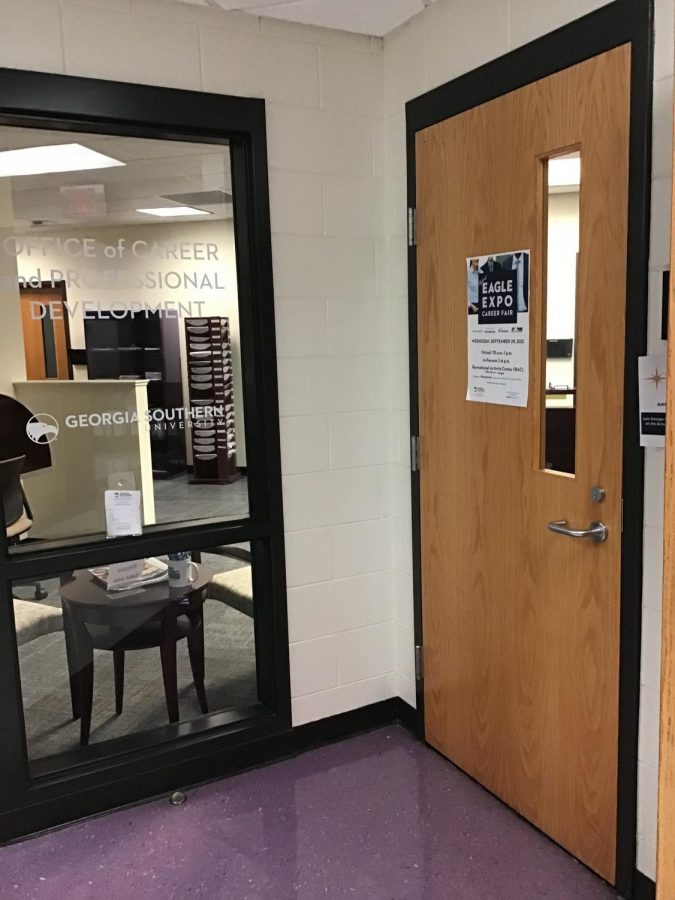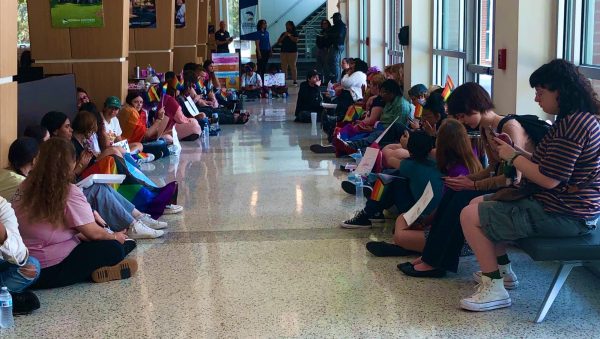How to Decide if Remote Work is Right for You
The George-Anne Inkwell sat down with Glenn Gibney, the Director of the Office of Career and Professional Development (OCPD) to talk about what students need to know about working remotely and what they should consider when applying for remote positions.
“Remote work as an everyday part of life is different than the pandemic, forced work from home,” Gibney said. “The pandemic forced companies to get people home, and gave them a test environment to find out whether working from home worked for their company. When working remotely by choice, the employee’s main office will be your home or a local coffee shop.”
Right now, companies are still working remotely not because they like it but because of health and safety concerns.
Assessing Your Ability to Work Remotely
“I think the thing that students need to do right immediately is make an honest assessment. First, is remote work right for them?” Gibney said.
This assessment should include asking questions such as
- Do you like to work around people most of the time?
- Will you be lonely?
- Do you have the right home environment? Is there a place to work?
- Are you disciplined enough?
- Is this good for me?
- Will I succeed?
What Companies Consider
Some of the questions in this assessment tie into what employers are asking when they look for someone to hire for a remote position. Companies think about one thing: productivity. They’re asking
- Will you be productive?
- Will you be disciplined?
- Can this person be trusted to be disciplined and productive?
It is students’ jobs to demonstrate to potential employers that they are disciplined by using examples.
“Companies haven’t changed much in 100 years. They want employees who are productive, so they need to know above all else, right, are you going to be productive in that remote role?” Additionally, companies are about making profit and are always assessing decisions based on their effects on the bottom line.
With remote work, they have to consider whether to pay for all their remote workers’
- Medical bills when they are injured while working from home
- Internet access
- Laptops and PCs
- Any other technology
Pros of Remote Work

After students have made their assessment, Gibney says to consider the pros and cons of remote work. Gibney’s list of pros include
- “It can be awesome.”
- “It can be peaceful.”
- “It can be productive, less stressful.”
- “It can be awesome in terms of quality of life, in terms of saving time, money, stress.”
- “Remote work opens up huge possibilities for students now that didn’t exist when I was getting out of college.”
“I lived, I worked in Manhattan, New York City, back in the 1980s, commuted from the suburbs, an hour and a half each way. If the train was on time. Right, so we’re talking three to four hours every single day just commuting,” Gibney said. “Working remotely, I can use that time to exercise or work some more.”
According to The Society of Human Resource Management (SHRM), 35 percent of workers who worked remotely say they do not want to go back to the office. Most employees say they are more productive at home. However, most employers say employees are more productive in the office.
Cons of Remote Work
The biggest con for Gibney is “the lack of physical connection to your job.” Studies have shown that workers who choose to work in the office get more assignments because visibility is crucial in the corporate world.
Another con is that collaboration is more challenging. “There are ways to do it, but I think collaboration is more challenging.”
Employees, who choose to work from home, run the risk of being lonely. For individuals between 21 and 35, 55% of them said they were lonely or depressed while working remotely, according to the Wall Street Journal.
Gibney recommends that remote workers work from a coffee shop a few hours a day or have lunch with someone every day outside of your house.
If a job ad says remote, it’s safe to assume that the position will be remote for the foreseeable future and not just because of the pandemic. However, they may change their mind and decide to make the position in person again next year.
Questions to Ask about Remote Positions
“I would ask a lot of questions,” Gibney says. Gibney lists questions that students should ask employers about the remote positions for which they are applying
- Is this permanently remote?
- Is this position fully remote? Is it hybrid?
- Will you pay for my technology and other resources I need?
- What is your experience with remote workers?
- What are the best practices for people who work remotely?
- What are the attributes of those people that work remotely that make them such good workers?
- Do you have a remote work policy?
- What’s your public policy?
- Do you offer a hybrid arrangement? Can I be in the office once a week?
“I’m bullish for a young person to actually work in an office environment until they get those skills, and then, they can go remote,” Gibney said. Remote workers do not know the corporate culture or answers to questions such as
- How to get promoted?
- How to get pay raises?
- What is valued?
- What is acceptable?
Ways to Find Remote Work
If students want to find remote positions, they can log into LinkedIn, type in a specific position, and select remote from the job search parameters. Students can also find remote positions on FlexJobs.com.
Georgia Southern University will also participate in the Home Workers Career Fair on Oct. 6. The fair is for college seniors and alumni only. They can attend the fair to participate in group info sessions. One-on-one interviews, scheduled in advance, will take place the following day between 10 a.m to 4 p.m..















